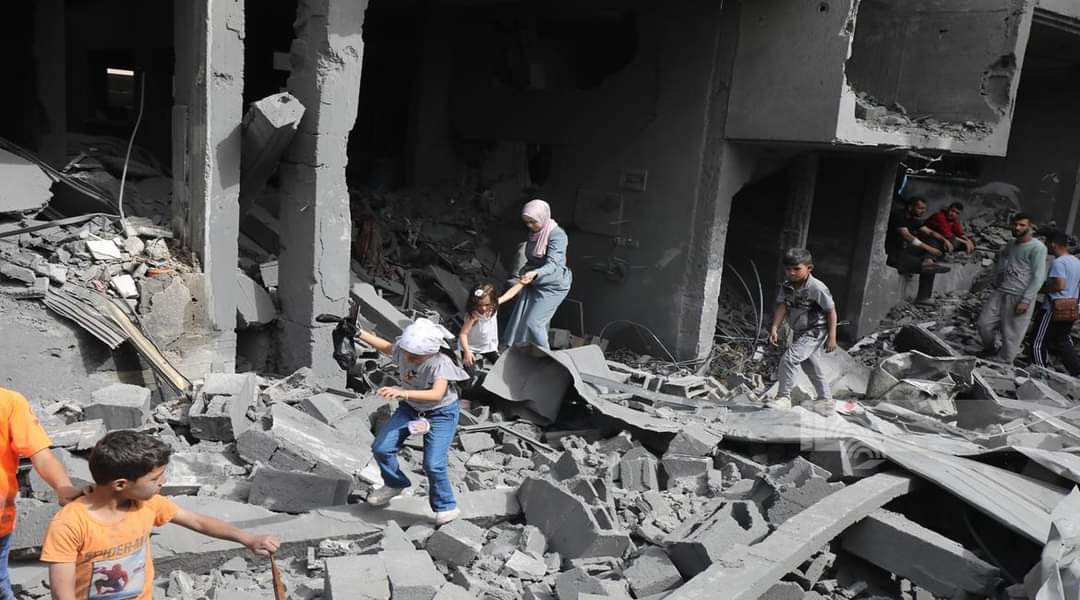U.S. Secretary of State Antony Blinken began a regional trip involving Israel and Egypt on Saturday, marking his ninth trip to the Middle East since October 7.
Hamas has called out Israeli Prime Minister Benjamin Netanyahu for obstructing efforts aimed at reaching a ceasefire in the Gaza Strip and a captives release deal, noting that he placed “more conditions” in the latest round of negotiations in Doha.
“After we listened to the mediators about what happened in the last round of talks in Doha, we confirmed again that Netanyahu is still placing obstacles to reaching an agreement and setting new conditions and demands with the aim of thwarting the mediators’ efforts and prolonging the war,” Hamas said in a statement on Sunday.
Hamas also called on the mediators “to assume their responsibilities and oblige the occupation to implement what was agreed upon”, including the May 6 and July 2 proposals.
“We hold Netanyahu fully responsible for thwarting the efforts of the mediators, obstructing reaching an agreement, and fully responsible for the lives of his hostages who are exposed to the same danger to which our people are exposed,” Hamas added.
A new round of talks took place in Doha between Thursday and Friday after the leaders of the mediating countries – Qatar, Egypt and the United States – issued a joint statement on August 8 urging Israel and Hamas to reach an agreement.
The talks ended with a joint statement from the mediators, describing the negotiations as “serious and constructive”.
The mediators had said that working teams will continue technical work on the details of the deal’s implementation, with talks scheduled to resume in Cairo “before the end” of this week.
The talks have stalled since last year’s week long truce deal, which was mediated by Qatar and Egypt.
The deal led to the release of 109 Israeli captives out of 251 held by Hamas and 240 Palestinians from Israeli prisons. Israel has since intensified its genocidal war in the Gaza Strip, killing at least 40,139 people while displacing more than 1.9 million people of the population.
Sticking points
In its latest statement, Hamas said it “has dealt with all responsibility with the efforts of the mediating” countries, noting it had agreed to past proposals.
The statement said: “The movement also expressed its approval of the mediators’ proposal on May 6, welcomed President [Joe] Biden’s announcement, what was stated in the UN Security Council resolution, and responded to the proposal presented by the mediators, and approved it on July 2.”
The Palestinian movement also echoed its statement from August 11 demanding a plan that would obligate Israel to implement the ceasefire and captives release deal instead of back and forth negotiations.
Commenting on the proposal being discussed from May 31, Hamas said it only responded “to Netanyahu’s conditions and is consistent with them, especially his rejection of a permanent ceasefire”.
Hamas added that Netanyahu has also been rejecting a comprehensive withdrawal from the Gaza Strip while insisting on occupying the Netzarim corridor, the Egypt-Gaza Rafah Crossing and the Philadelphi Corridor.
The Netzarim Corridor enables Israeli occupation forces to carry out deadly raids in northern and central Gaza while preventing displaced Palestinians’ from returning to the north.
The issue has long been among the sticking points of the negotiations, with Israel repeatedly placing conditions on the return of internally displaced Palestinians to northern Gaza.
Israel had also invaded and destroyed the vital Rafah Crossing on May 6, moments after Hamas agreed to a deal presented by the mediators. The occupation of the crossing disrupted the flow of aid and life-saving evacuations of Palestinians in need of medical treatment abroad.
The Philadelphi Corridor was initially a buffer zone under the Egypt-Israel 1979 treaty that ended the Israeli occupation of Egypt’s Sinai Peninsula. The zone aimed at preventing weapons from reaching Palestinians in Gaza.
Israel’s withdrawal from Gaza in 2005 granted Egypt complete control over the Philadelphi Corridor and became the besieged enclave’s portal with the outside world under the Israeli blockade of 2007.
Blinken on ninth regional visit since October 7
Meanwhile, U.S. Secretary of State Antony Blinken began a regional trip involving Israel and Egypt on Saturday, marking his ninth trip to the Middle East since October 7.
Blinken met Israeli President Isaac Herzog on Monday in Tel Aviv, where the latter accused Hamas of standing in the way of the negotiations.
“This is the way we are living these days; we are surrounded by terror from the four corners of the Earth and we are fighting back as a resilient and strong nation. And it is reflected in the attitude of Hamas in the negotiations for the release of our hostages,” Herzog said before his meeting with Blinken.
“People have to understand it starts with the refusal of Hamas to move forward. We are simply still very hopeful that we can move forward in the negotiations that are held by the mediators, and I want to thank the United States, Egypt, and Qatar for their efforts on this,” he added.
Blinken said his visit came at “a decisive moment” in the negotiations.
“I’m here as part of an intensive diplomatic effort on President Biden’s instructions to try to get this agreement to the line and, ultimately, over the line. It is time for it to get done. It’s also time to make sure that no one takes any steps that could derail this process,” Blinken said.
This time, the negotiations are taking place amid heightened tensions in the region, fueled by Israel’s assassination of Hamas political chief Ismail Haniyeh in Tehran on July 31 and the Israeli assassination of Hezbollah commander Fouad Shukur in Beirut on July 30.
While Israel claimed the attack in Beirut, it has yet to claim responsibility for the killing of Haniyeh despite global condemnations, including from mediators Qatar and Egypt.
Iran and Hezbollah have since vowed to retaliate against Israel, raising fear over further escalation within the region.







